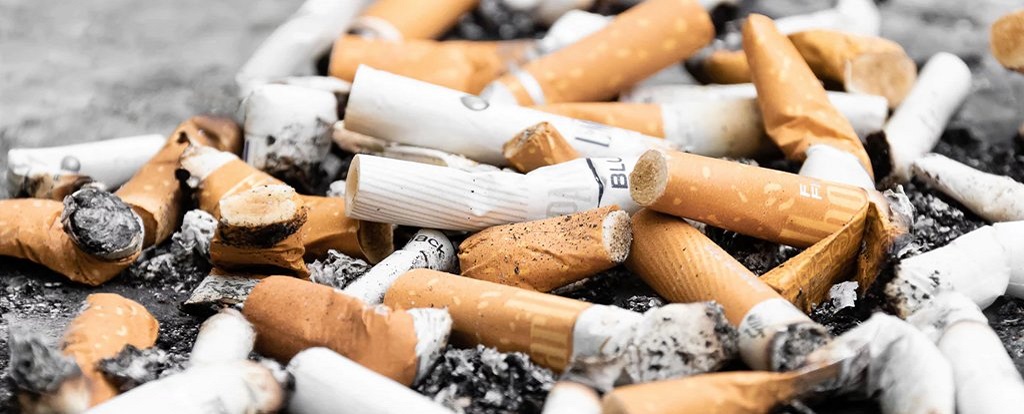Why Cigarette Butts Are a Huge Environmental Problem You Might Not Be Aware Of

Cigarette butts are one of the most common forms of plastic litter on our beaches. They are also a severe threat to marine life.
While many believe cigarette butts are biodegradable, they contain cellulose acetate, a type of plastic that takes a long time to break down. This leads to many toxic chemicals being released into the environment.
They Are Made of Plastic
We don’t think of many things as environmental problems, but cigarette butts might be the most harmful to the environment. They are made of plastic, take a long time to decompose and contain toxins that can harm wildlife, waterways and the environment where they end up.
According to a certain foundation, a nonprofit dedicated to ocean and beach protection, cigarette butts are the second most common form of litter in the United States and the most frequent on beaches worldwide. These butts, made of plastic filters that don’t biodegrade, carry toxins like arsenic, benzene and lead into the waterways.
They also threaten commercial fisheries, which are forced to use more expensive and environmentally-unfriendly methods of cleaning up the toxic runoff. When ingested by fish, the chemicals in cigarette butts can reduce their stomach capacity and cause them to consume less food, eventually starving the fish.
There are some ways you can help combat cigarette butt pollution, such as the cigarette butt pollution project. First, try to avoid smoking on beaches or in parks. You can also try to recycle cigarette butts. In Vancouver, for example, a nonprofit has partnered with the city to install bins where people can deposit butts. These containers are then sent to TerraCycle, which turns them into industrial-grade products like plastic pallets.
They Take a Long Time to Decompose
One reason that cigarette butts take a long time to decompose is that they’re made of cellulose acetate, a type of plastic that isn’t readily biodegradable. When cigarette butts are tossed into streets, parks and beaches, the cellulose acetate is diluted in water and soil and absorbed by the surrounding plants and wildlife.
This makes the butts a substantial environmental problem because they are often found in rivers, streams and seas where fish, turtles and other marine animals feed on them. In addition, cigarette butts are also full of harmful chemicals such as arsenic, lead and cadmium that can leach into water sources.
Another reason that cigarette butts take a very long time to decompose is that they are so heavy. When thrown into landfills, they decompose for up to 15 years, and their toxins can leak into waterways and air.
A new trial underway in Australia is using fungi to break down cigarette butts, diverting the waste from landfills and creating natural alternatives to plastics. This is a big step forward in tackling a huge continent-wide problem.
Ultimately, reducing the amount of waste sent to landfills is a crucial way to decrease the damage cigarettes do to our environment. The best way to do this is to educate smokers about why smoking is harmful and encourage them to dispose of their butts properly.
They Contain Toxins
A lot of people are surprised to learn that cigarette butts contain toxins. These toxins are in the plastic filter of cigarettes. As the cigarette filters decompose over time, they release a wide range of toxic chemicals into the environment, including arsenic, lead, cadmium and nicotine.
This is a severe problem, as these chemicals can cause health problems over time, even for those not exposed to the toxins. They can also damage the environment as they can end up in waterways and oceans, killing fish and marine organisms.
Fortunately, there are ways to fight cigarette litter. One is by making it more expensive to buy cigarettes. A tax on cigarette purchases could fund anti-litter campaigns and education for young people.
Another is by making it easier to dispose of cigarette butts. Some cities have set up bins to collect and transport cigarette butts to a recycling facility. Others have banned cigarette smoking altogether in public places or have instituted an additional fee on cigarettes to pay for pollution clean-ups.
The problem is that many smokers throw their butts into the street or gutter, ending up in rivers and the sea. This leads to a lot of trash, costing the government and other organizations money to pick up this waste.
They Are a Problem on Beaches
Cigarette butts are one of the world’s most common forms of litter. They are found in rivers, on beaches, and in the ocean. They are also a major source of pollution for marine wildlife and fish.
Despite their small size, cigarettes contain many toxic chemicals that can harm the environment and humans. These include toxins like formaldehyde, toluene, butane, and benzene.
These chemicals are absorbed by cigarette butts and then released into the water when they decompose. The toxins then contaminate the environment, killing fish, sea turtles, and other marine life.
They can also be found in the stomachs of birds and other animals that mistake discarded butts for food. Ingesting these materials can cause malnutrition and even death.
It is important to remember that smoking can lead to cancer, lung disease, and other health problems. It can also have a negative impact on your mood and relationships.
